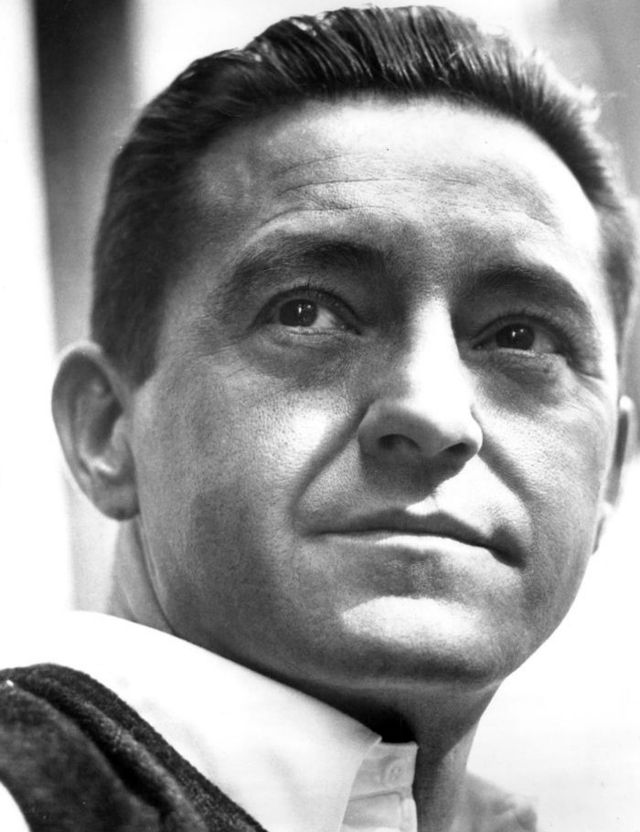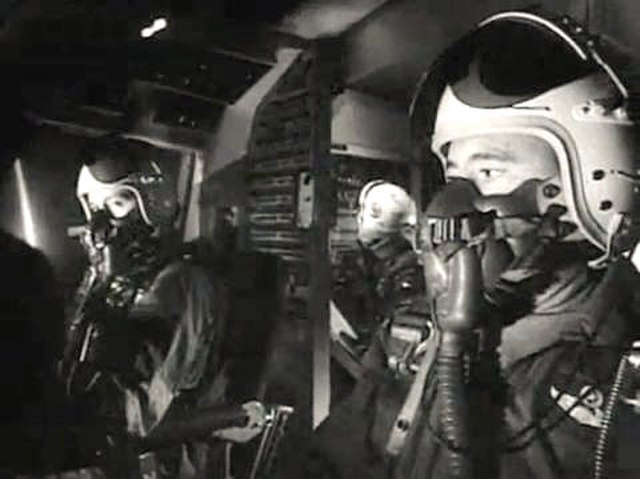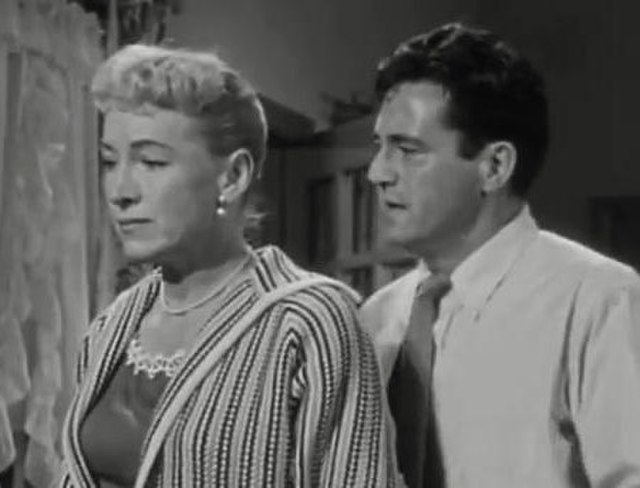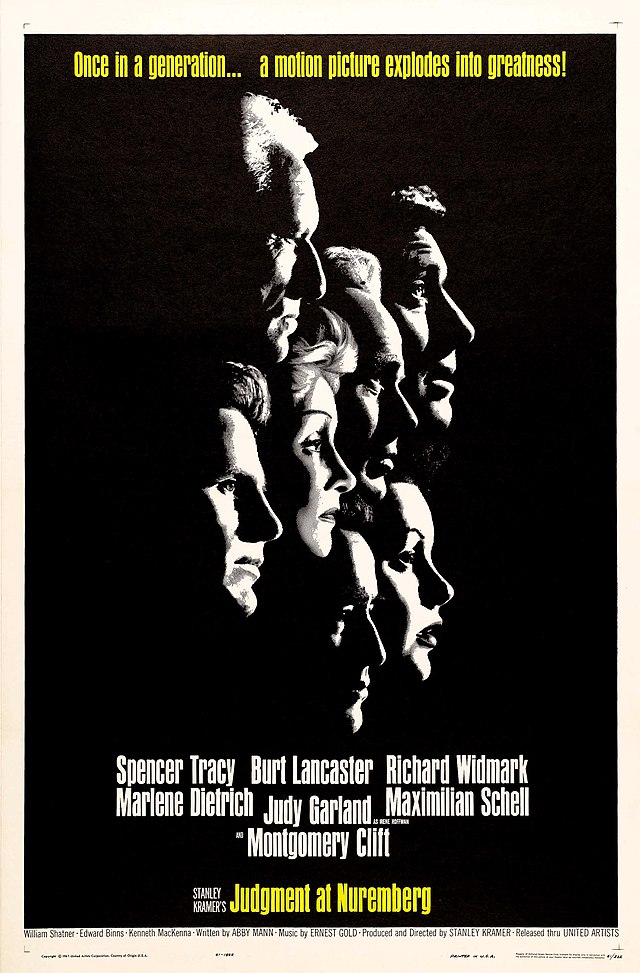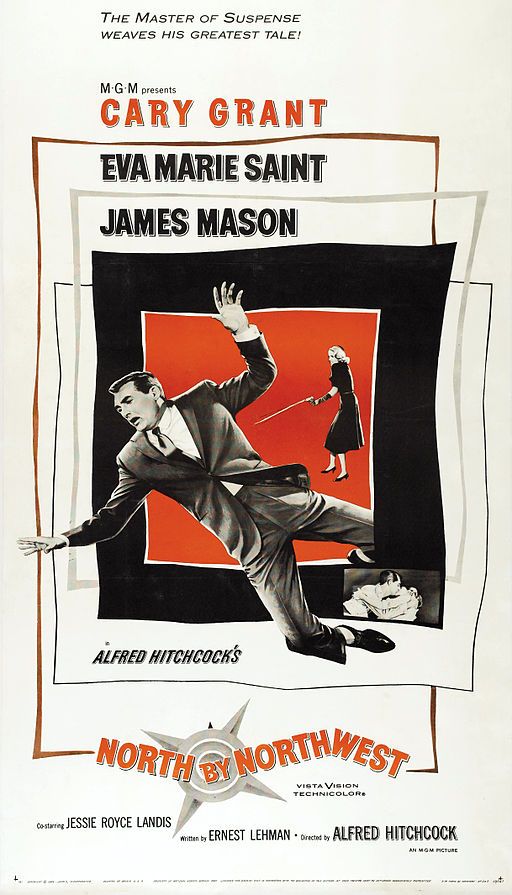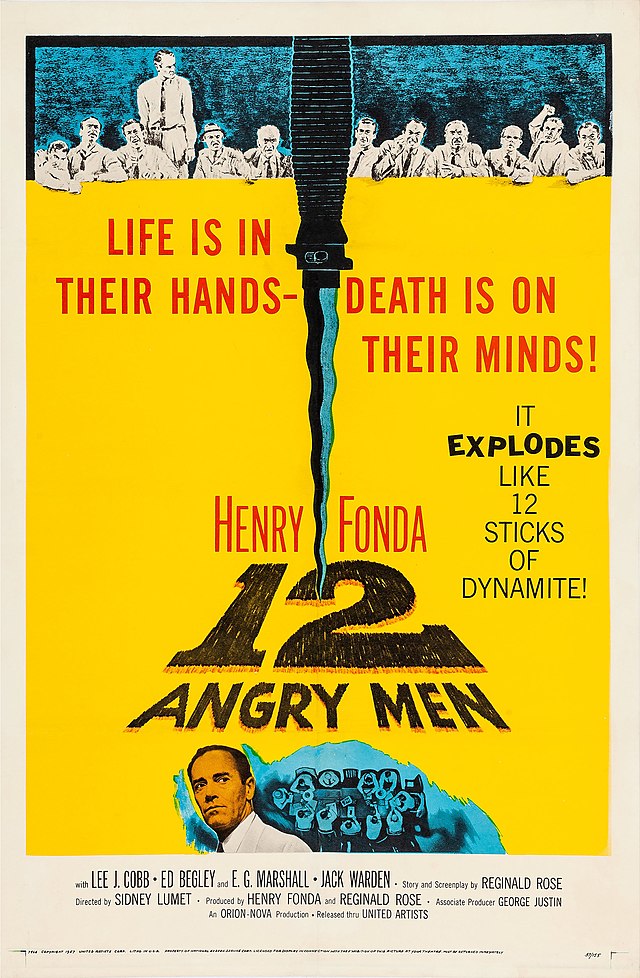Edward Binns
back| Full Name | Edward Thomas Binns |
| Stage Name | Edward Binns |
| Born | September 12, 1916 |
| Birthplace | Philadelphia, Pennsylvania, USA |
| Died | December 4, 1990 |
| Buried | Forest Lawn Memorial Park, Glendale, California, USA |
| Married to | Elizabeth Franz – Jeanne Bartlett |
| Children | One daughter, Kathy Binns (from his first marriage to Elizabeth Franz) |
| Notable films | 12 Angry Men (1957) - North by Northwest (1959) - Judgment at Nuremberg (1961) |
Edward Binns
The Quiet Pillar of Hollywood
Edward Binns (1916–1990) was a versatile American character actor known for his understated and authentic performances. Binns appeared in numerous iconic films, including 12 Angry Men (1957), North by Northwest (1959), Judgment at Nuremberg (1961), Fail-Safe (1964), and Patton (1970).
Renowned for his portrayals of authority figures, he brought quiet intensity and realism to roles across courtroom dramas, thrillers, and war films.
Related
Edward Binns (1916 – 1990)
Biography and Movie Career
Early Life and Formative Years
Edward Thomas Binns was born on September 12, 1916, in Philadelphia, Pennsylvania, into a working-class family. Growing up during the interwar years, Binns experienced the societal and economic challenges of the Great Depression, which shaped his perspective and instilled in him a strong work ethic. He discovered a passion for storytelling and performance at a young age, which led him to pursue acting despite the financial uncertainties of such a career.
Binns attended the University of Pennsylvania, where he began exploring his interest in drama. He later trained at the Cleveland Play House, a prestigious regional theater where he built a solid foundation in stagecraft. His experiences there fueled his decision to move to New York City, where he joined the legendary Actors Studio. Under the mentorship of Elia Kazan and Lee Strasberg, Binns refined his acting skills, embracing the principles of method acting that would become central to his career.
Career Path: From Stage to Stardom
Binns began his career on the stage, appearing in a series of Off-Broadway and Broadway productions. One of his early successes was his role in Command Decision, which showcased his ability to convey authority and gravitas. His commanding stage presence and knack for nuanced performances caught the attention of filmmakers, and he made his Hollywood debut in the early 1950s.
Edward Binns' breakout role came in Sidney Lumet’s courtroom drama 12 Angry Men (1957), where he portrayed Juror #6, a thoughtful and empathetic everyman.
This role cemented his reputation as a dependable character actor, capable of bringing depth and humanity to supporting roles. Over the years, he appeared in several critically acclaimed films, including:
• North by Northwest (1959), directed by Alfred Hitchcock, where he played Captain Junket.
• Fail Safe (1964), where he starred as Colonel Grady, a role that demonstrated his ability to convey both authority and vulnerability.
• Judgment at Nuremberg (1961), which further highlighted his dramatic range.
• Patton (1970), as Major General Walter Bedell Smith, adding gravitas to the iconic war drama.
Binns was equally successful on television, appearing in numerous classic series such as Perry Mason, The Twilight Zone, Gunsmoke, The Fugitive, and The Untouchables. His roles often portrayed him as a military officer, police chief, or other authority figures, earning him the reputation of being a "steady hand" in Hollywood.
Personal Life and Passions
In his personal life, Edward Binns was known for his humility and dedication to his craft. He married twice; his first marriage was to actress Elizabeth Franz, with whom he had one daughter, Kathy. The couple eventually divorced, and Binns later married Jeanne Bartlett, with whom he shared a deep bond until his death.
Beyond acting, Binns was passionate about teaching and mentoring younger actors. He believed in the transformative power of the arts and often spoke about the importance of authenticity in performance. Friends and colleagues described him as warm, thoughtful, and intellectually curious, with a love for literature and classic cinema.
Later Years and Death
In his later years, Binns continued working in film and television, maintaining a steady presence in the industry even as the golden age of Hollywood gave way to new trends. He remained a beloved character actor, known for his reliability and professionalism.
Tragically, Edward Binns passed away on December 4, 1990, at the age of 74. He suffered a heart attack while traveling in Brewster, New York. His sudden death was a loss to both the entertainment world and those who knew him personally. He was laid to rest at Forest Lawn Memorial Park in Glendale, California, a fitting resting place for a man whose work contributed so much to the arts.
Legacy
Edward Binns' legacy lies in his ability to bring authenticity and depth to every role he played. Though he was never a leading man, his contributions as a character actor made him an indispensable part of Hollywood's golden age. Films like 12 Angry Men and Fail Safe remain classics, with Binns' performances standing out as examples of quiet strength and emotional truth. His life and work continue to inspire actors and film enthusiasts alike.
Edward Binns in 12 Angry Men
Authentic Acing Style of Edward Binns
Edward Binns' acting style was marked by a quiet intensity, a deep sense of authenticity, and an understated approach that brought credibility to every character he portrayed. Known as a quintessential character actor, Binns excelled in roles that demanded subtlety and nuance rather than grandstanding, making him a reliable and respected presence in Hollywood during its golden and transitional eras.
Naturalism and Realism
Binns was trained in the Method Acting tradition at the Actors Studio, where he learned to approach characters with psychological depth and emotional honesty. His performances were never forced or theatrical; instead, he brought a grounded realism that resonated with audiences. Whether he was playing a jury member in 12 Angry Men or a military officer in Fail-Safe, his characters felt like real people, living in the moment, grappling with dilemmas, and reacting naturally to their circumstances.
Subtle Authority
Binns often played authority figures—policemen, military officers, judges—characters who embodied order and structure. He had a natural gravitas, stemming from his commanding voice and sturdy physical presence, which lent authenticity to these roles. Unlike actors who might lean into bombast to portray power, Binns was understated, exuding quiet confidence and a calm, measured demeanor. This subtle approach made his characters more relatable and believable.
Master of Supporting Roles
Binns was not a leading man, but his ability to shine in supporting roles was one of his greatest strengths. He understood how to serve the story, providing depth and texture without overshadowing the main narrative. In 12 Angry Men, for example, his portrayal of Juror #6—a blue-collar everyman—was both restrained and empathetic. He didn’t dominate the screen but contributed to the film’s ensemble brilliance by grounding the jurors' deliberations in humility and common sense.
Versatility Across Genres
Binns’ acting style adapted seamlessly to various genres. In courtroom dramas like Judgment at Nuremberg, he displayed moral complexity, while in thrillers like North by Northwest, he conveyed a sense of urgency and precision. His work in westerns and war films further showcased his ability to embody rugged individualism and quiet heroism. This versatility was rooted in his deep understanding of character motivation and his ability to find the human core of any role.
Empathy and Relatability
Perhaps the most defining characteristic of Binns' acting was his ability to connect with audiences through empathy. His characters often reflected the struggles and triumphs of ordinary people, making him a relatable figure on screen. He brought dignity to roles that might otherwise have been overlooked, ensuring that even minor characters had weight and significance.
A Balanced Approach
Binns avoided overacting and melodrama, favoring restraint and precision. He believed in doing just enough to convey a character’s inner world, trusting the audience to interpret the subtleties of his performance. This disciplined approach made him a favorite of directors who valued authenticity over spectacle.
Legacy
Edward Binns’ acting style is a testament to the power of subtlety and the importance of supporting players in the world of film. He demonstrated that great acting is not about stealing the spotlight but about enriching the story and enhancing the performances around you. His work continues to be a study in the art of restraint, professionalism, and the enduring impact of honest storytelling.
Memorable Film Lines of Edward Binns
• Juror #6: "Well, I'm not used to supposin'. I'm just a workin' man. My boss does all the supposin', but I'll try one. Supposin' you talk us all out of this, and, uh, the kid really did knife his father?"
• Juror #6: "What are you talkin' to him like that for? Guy talks like that to an old man really oughta get stepped on, you know. You oughta have more respect, mister."
Awards and Recognition
Despite his extensive body of work, Edward Binns did not receive any individual awards during his career. However, he contributed significantly to several acclaimed productions that garnered critical recognition:
• "12 Angry Men" (1957): Binns portrayed Juror No. 6 in this classic courtroom drama, which received three Academy Award nominations, including Best Picture.
• "Judgment at Nuremberg" (1961): In this film, Binns played Senator Burkette. The movie won two Academy Awards and was nominated for Best Picture.
• "Patton" (1970): Binns appeared as Major General Walter Bedell Smith in this biographical war film, which won seven Academy Awards, including Best Picture.
• "The Verdict" (1982): Binns played Bishop Brophy in this legal drama, which received five Academy Award nominations, including Best Picture.
Movies featuring Edward Binns
1951:
• Teresa – Binns portrayed Sergeant Brown in this drama about an Italian war bride adjusting to life in America post-World War II.
1952:
• Without Warning! – He played Lieutenant Pete Hamilton in this crime thriller about a gardener who becomes a serial killer.
1953:
• Vice Squad – Binns took on the role of Al Barkis in this film noir focusing on the Los Angeles Police Department's efforts to combat crime.
1956:
• Patterns – He appeared as an elevator starter in this drama about corporate power struggles.
• The Scarlet Hour – Binns played Sergeant Allen in this crime film involving a love triangle and a planned robbery.
• Beyond a Reasonable Doubt – He portrayed Lieutenant Kennedy in this film noir about a man who frames himself for murder to expose flaws in the justice system.
1957:
• 12 Angry Men – Binns is best known for his role as Juror No. 6 in this classic courtroom drama where a jury deliberates the fate of a young defendant.
• Portland Exposé – He played George Madison in this crime drama about corruption and vice in Portland, Oregon.
• Young and Dangerous – Binns appeared as Dr. Price in this drama about teenage delinquency.
1959:
• Compulsion – He portrayed Tom Daly in this crime drama based on the Leopold and Loeb case.
• The Man in the Net – Binns played State Police Captain Green in this thriller about a man accused of his wife's disappearance.
• Curse of the Undead – He took on the role of the Sheriff in this horror western featuring a vampire gunslinger.
• North by Northwest – Binns appeared as Captain Junket in Alfred Hitchcock's classic thriller involving mistaken identity and espionage.
1960:
• Heller in Pink Tights – He portrayed Sheriff Ed McClain in this western about a traveling theater troupe.
• Desire in the Dust – Binns played Luke Connett in this drama involving secrets and scandals in a Southern town.
1961:
• Judgment at Nuremberg – He appeared as Senator Burkette in this courtroom drama about the post-World War II Nuremberg Trials.
1962:
• A Public Affair – Binns portrayed Senator Fred Baines in this political drama.
• Hemingway's Adventures of a Young Man – He played a brakeman in this coming-of-age story based on Ernest Hemingway's writings.
1964:
• Fail-Safe – Binns took on the role of Colonel Grady in this Cold War thriller about a nuclear crisis.
• The Americanization of Emily – He portrayed Admiral Thomas Healy in this satirical war film set during World War II.
1966:
• The Plainsman – Binns appeared as Lattimer in this western focusing on Wild Bill Hickok and Calamity Jane.
1968:
• Chubasco – He played Judge North in this drama about a young man working on a tuna boat to avoid jail.
1970:
• Patton – Binns portrayed Major General Walter Bedell Smith in this biographical war film about General George S. Patton.
1974:
• Lovin' Molly – He appeared as Mr. Fry in this romantic drama spanning several decades.
1975:
• Night Moves – Binns played Joey Ziegler in this neo-noir thriller about a private investigator unraveling a complex case.
1976:
• Diary of the Dead – He portrayed Mr. McNulty in this drama about a journalist investigating a murder.
1978:
• Oliver's Story – Binns appeared as Phil Cavilleri in this romantic drama, the sequel to Love Story.
1980:
• The Pilot – He played Larry Zanoff in this drama about an airline pilot struggling with alcoholism.
1982:
• The Verdict – Binns portrayed Bishop Brophy in this courtroom drama about a lawyer seeking redemption through a medical malpractice case.
1988:
• After School – He appeared as Monsignor Frank Barrett in this drama about a teenager dealing with personal challenges.

